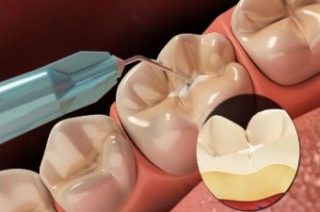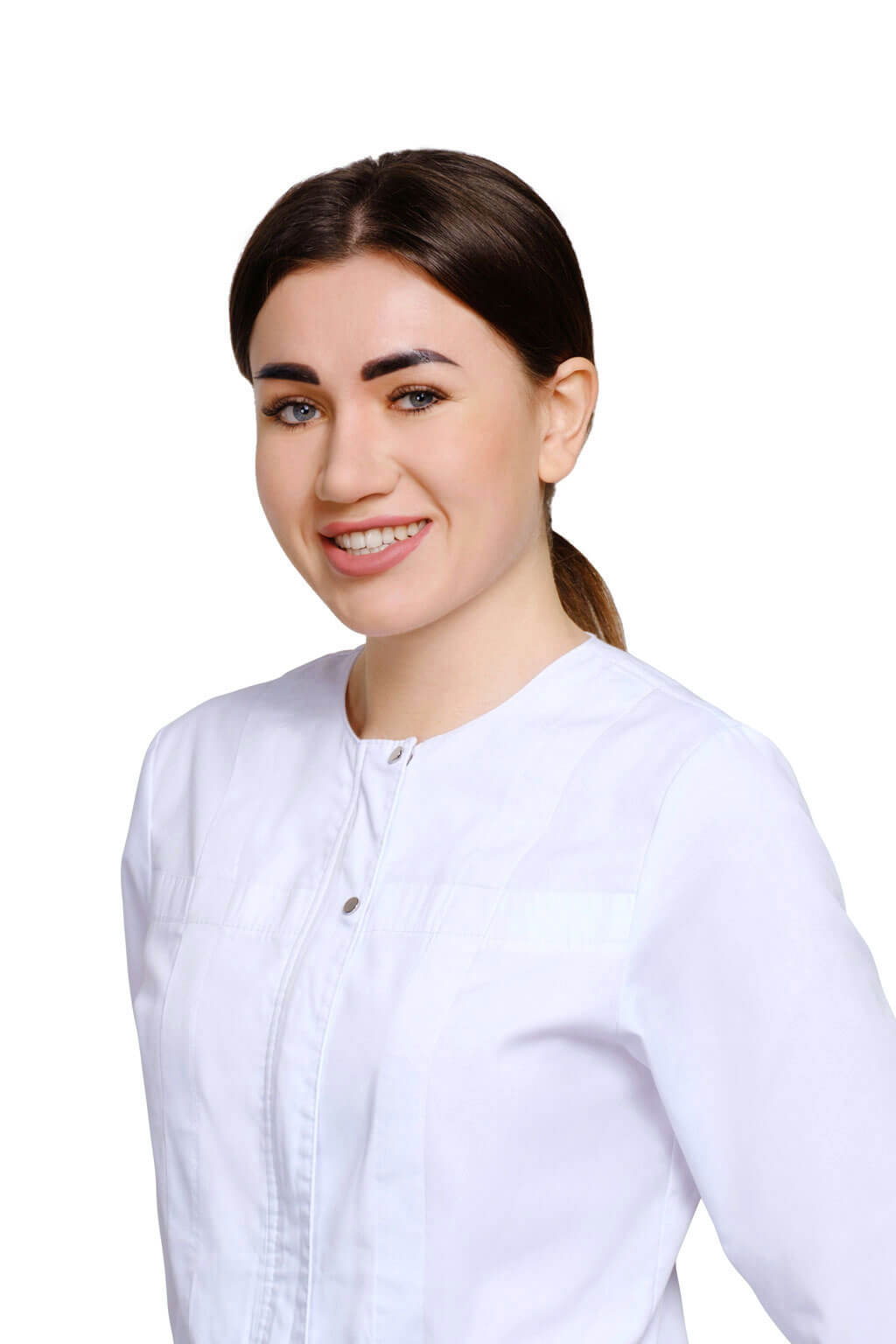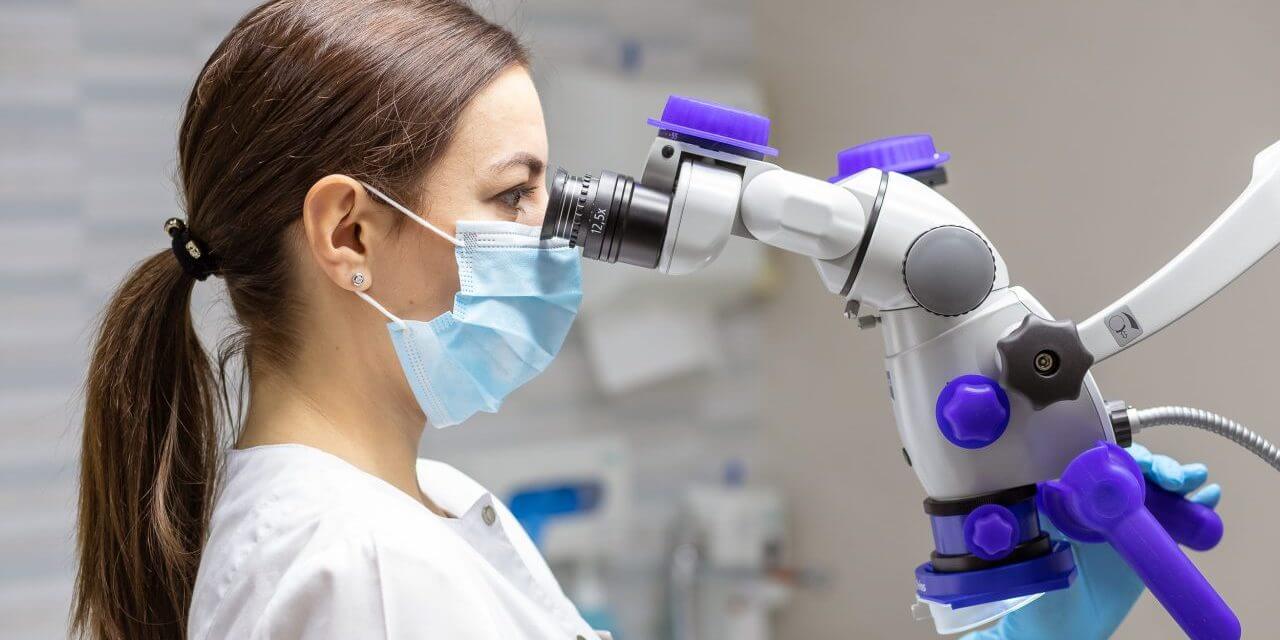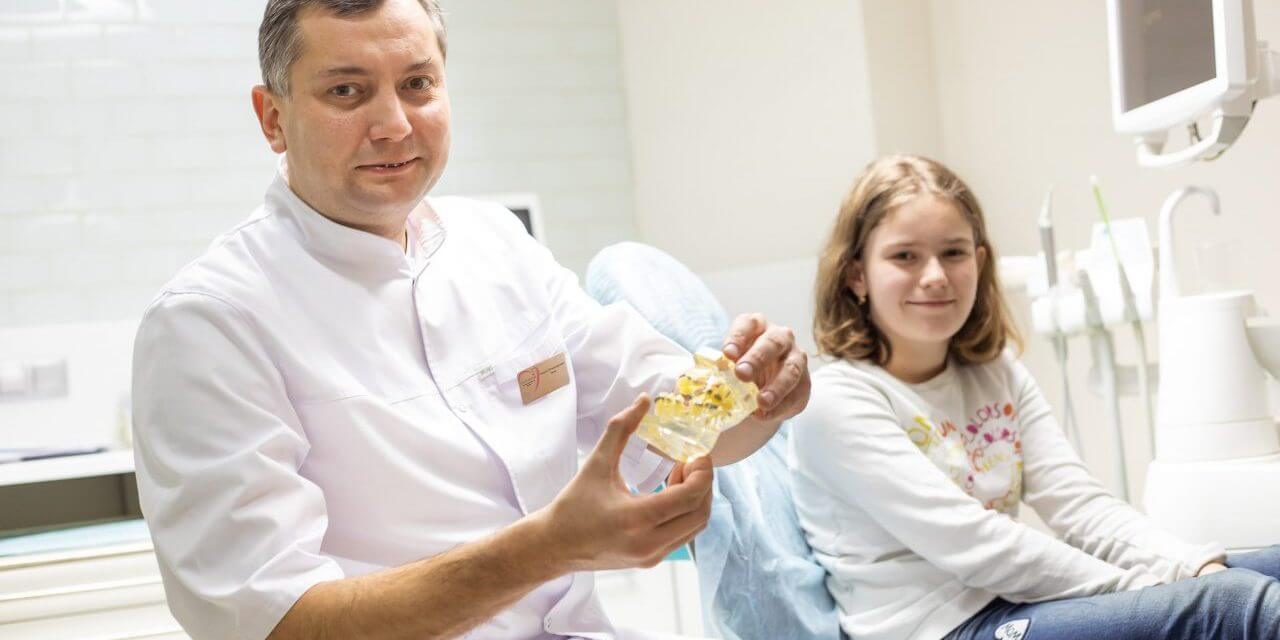
Fissures are cavities on the chewing teeth. Their depth can be 0.25-3 mm. Food debris stays in them and creates a favorable environment for the development of pathological microorganisms. As a result, caries develops. The enamel on children’s teeth is still weak, so the sealing of fissures is an excellent prevention of caries. Such a procedure can be carried out on both permanent and milk teeth.
The composition of the sealant used by pediatric dentists of the Clinic of Professor Vesova contains anti-carious components (calcium and fluoride). They nourish the tooth and significantly reduce the risk of caries. On permanent teeth, sealing is performed after the tooth has completely erupted.
METHODS OF FISSURES HERMETIZATION
Invasive technique. Pediatric dentists recommend this kind of sealing if the fissures are deep and narrow. It is also shown in the presence of surface caries. Before the procedure, professional teeth cleaning is carried out. Then the fissure is expanded with a drill, the enamel is etched with acid. After washing and drying, a sealant and a fluorine-containing composition is applied.
Non-invasive method. Such a procedure is carried out, if the fissures are wide enough, access to them is not difficult. The procedure is similar to the invasive one; the only difference is that the fissure does not expand with a drill.
MATERIALS FOR SEALING
Our pediatric dentists use modern fluid materials. The staff fills the fissures of any shape and depth completely. The material during the year after application to the teeth releases fluoride ions. A syringe pen is used to fill the fissure with a sealant.
HOW OFTEN IS IT NECESSARY TO SEAL FISSURES?
The standard term of tightness is 3-5 years. It all depends on the individual characteristics of the child. Sealant can stand for 6-7 years or be erased after 2 years. Therefore, it is important to regularly bring the child for routine checkups so that the pediatric dentist can appoint a repeat procedure timely
Sealing of fissure of milk teeth is usually carried out at the age of 2.5-3 years, when the teeth are fully erupted. This procedure reduces the risk of decay of milk teeth by 90%, if proper daily care is provided.
ADVANTAGES OF VISITING TO THE CLINIC OF PROFESSOR VESOVA:
- Experienced doctors with modern treatment technologies.
- High quality certified materials.
- The staff that cares about the emotional state of young patients.
Price list
Children's reception
OUR ADVANTAGES
Leave your review about us!
Your opinion is valuable to us





